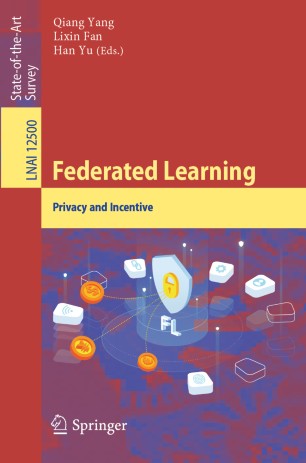

Most ebook files are in PDF format, so you can easily read them using various software such as Foxit Reader or directly on the Google Chrome browser.
Some ebook files are released by publishers in other formats such as .awz, .mobi, .epub, .fb2, etc. You may need to install specific software to read these formats on mobile/PC, such as Calibre.
Please read the tutorial at this link: https://ebookbell.com/faq
We offer FREE conversion to the popular formats you request; however, this may take some time. Therefore, right after payment, please email us, and we will try to provide the service as quickly as possible.
For some exceptional file formats or broken links (if any), please refrain from opening any disputes. Instead, email us first, and we will try to assist within a maximum of 6 hours.
EbookBell Team

4.4
62 reviewsThis book provides a comprehensive and self-contained introduction to federated learning, ranging from the basic knowledge and theories to various key applications.
Privacy and incentive issues are the focus of this book. It is timely as federated learning is becoming popular after the release of the General Data Protection Regulation (GDPR). Since federated learning aims to enable a machine model to be collaboratively trained without each party exposing private data to others. This setting adheres to regulatory requirements of data privacy protection such as GDPR.
This book contains three main parts. Firstly, it introduces different privacy-preserving methods for protecting a federated learning model against different types of attacks such as data leakage and/or data poisoning. Secondly, the book presents incentive mechanisms which aim to encourage individuals to participate in the federated learning ecosystems. Last but not least, this book also describes how federated learning can be applied in industry and business to address data silo and privacy-preserving problems. The book is intended for readers from both the academia and the industry, who would like to learn about federated learning, practice its implementation, and apply it in their own business. Readers are expected to have some basic understanding of linear algebra, calculus, and neural network. Additionally, domain knowledge in FinTech and marketing would be helpful.”